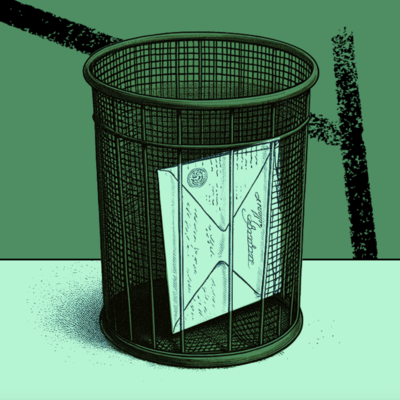
How AI Changes the Media Business
Why community and social network effects will be key to winning the future
Let’s play a game of two extremes.
On one side sprawls a pantless man, alone, in the dark of his mother’s basement, a half-melted tub of ice cream dripping onto his raggy T-shirt, while chatting in his favorite Discord as he watches the anime the server is devoted to.
On the other side, a shirtless man—inebriated, high, and just all around wasted—is crammed into a living room with a dozen other similarly smashed individuals, each squinting their eyes to watch the NBA playoffs over a haze of cigar smoke wafting through the room.
The game is this: Which of these is the better media product?
From the moment we boot up a device, every single app and piece of content contained therein is in a death match for your eyeballs. If you removed the cigars and Rocky Road, the better media product is determined by individual preferences. Whether you prefer Naruto or the Brooklyn Nets is dependent on personal taste. You can’t watch both simultaneously—every time you watch anime versus the NBA you make a trade-off.
This leaves media companies to compete, not solely on the basis of the quality of the content, but on all the extra stuff surrounding content. The ability to build fandom, to have some sort of monopoly, even just to be really good at marketing, all these things are how companies stand out.
AI may 10x this dynamic—let me explain:
What AI disrupts
I’ve written in the past how companies do three things:
- Create stuff
- Acquire customers to buy stuff
- Distribute that stuff
The internet broke category three by making distribution free. Suddenly, all sorts of previously enjoyed advantages disappeared. Regional newspapers were no longer the only game in town. Sports franchises had to compete for fans with every other team in the league. On it went. This ended up empowering players like YouTube or Google that were able to aggregate attention and then distribute it in whatever manner they deemed fit.
AI breaks category one by dramatically reducing the cost of content creation. This will exponentially increase the volume of content being made, hurting existing publishers even more. I’ve argued this since fall of 2022.
However, in my excitement, I missed something.
AI breaks how we acquire customers too.
Superpowered recommendation systems
When consumers want to sift through the internet, they’ll use two closely related, AI-powered technologies: a search engine to pull exact results, or a recommender system to find related results.
Since 2017, both of these systems have mostly been powered by deep learning, the same techniques at the heart of the GPT technology. The more powerful the deep learning model surfacing the content, the more time/money users will give as a result. So, hypothetically, what would happen if we saw a similar level of improvement in recommendation systems that we have seen in image generation with Midjourney?
My guess is that we are suddenly looking at a world with far, far more addicting services. TikTok is, I think, a harbinger of things to come. The average user is on the app for 89 minutes a day and opens the app 19 times. It is highly addictive and easy to scroll on for hours. If a content creator does not create a video that’s immediately watchable, TikTok doesn’t even bother to show it to the audience. Similarly, if a company does not create something addictive, the aggregators’ recommender system will not surface them, leading the business to failure. In the case of TikTok, that would be videos, but similar dynamics play across all content mediums.
AI breaks customer acquisition because suddenly the attention aggregators are far, far better at their job. Recommender systems determine what content gets made because it decides who gets attention. And to be fair, this has been happening for a long time! However, I think AI may enforce and accelerate this dynamic to an almost incomprehensible degree. The only channels that would be acceptable would be ones that recommender systems are unable to sink their talons into—aka email.
This is the most likely scenario in my opinion. However, there is also a possibility of something more bizarre.
Our weird-ass future
What if AI smashes creation and aggregation into each other simultaneously?
An easy example to grok is prose. Right now The New York Times will A/B test headlines to see which ones drive more email opens and clicks. However, GPT-4 means that, theoretically, you could A/B test the entire body of pieces. Does a more sardonic tone perform better? How about a TL;DR at the top? We can take this idea even further.
With technology available today, I bet you could build a personalized version of The New York Times. The copy would be in the style of your favorite author, the stories surfaced would be precisely tuned to your interests. Sure, if you prefer an artisanal touch, you could keep the original journalist’s copy, but most people won’t.
Shoot, why do you even need articles at all? An AI bot could know what topics you care about and surface the facts you would care about for the day. If you want to know more, simply ask.
In this scenario, publications are relegated to being databases. Journalists' roles would consist of cultivating sources and punching data points into the AI. The software would take care of the rest.
This version of events would wholly, entirely break the business model of nearly every publisher on the planet. I have absolutely no idea how you put a performative ad into a chatbot format. I’m not even sure it is possible. We would have a biblical-level apocalyptic collapse of publishers not seen since the ’90s. Only the select few brands who could demand subscription pricing for bot access will succeed. However, even in the scenario where every publisher can build a bot, power would once again flow to the aggregators who could build a bot that has data from all publishers, not just one. Why have the Napkin Math chatbot when you could have one for the entire Every bundle? Or one for every tech writer on the planet?
AI could theoretically also generate video games and movies so tuned to the individual that it elicits near ecstasy each time you turn it on. Sequoia Capital calls this phenomena “personalized dreams” (a phrase I love), and it predicts it will happen by 2030 (a timeline that is frightening and I do not love).
So what does this have to do with our anime and sports fans?
In a world with perfectly tuned personal entertainment, media companies can only compete on social dimensions. It is in group experiences and discussion and community forums and MNF guys night that products will win. It is in the network effects of social cohesion that content has true sustaining power. I really liked how Doug Shapiro summarized this in a post last week:
“Networks are subject to powerful positive feedback loops. On a network, people’s choices are influenced by others’ decisions, amplifying ‘hits.’ There are two mechanisms underlying this: information cascades (when people treat others’ choices as signals of quality) and reputational cascades (when people conform with the group decision). As choice has exploded on the Internet and it has become easier to both observe others’ choices and share your own, these mechanisms have become more powerful.”
The only law of the internet is the power law. In a world of insanely powerful AI-driven creation and aggregation, this dynamic is amplified. Rather than the top .1% of publishers winning all the riches, it might be the top .001% getting the remaining spoils. Personalized AI bots and content sweep up the rest. Media companies will either be forced to create moments that drive network effects or be relegated to the graveyard.
Frankly, this is a frightening, bad world. A world without middle-man information producers means the death of local news, investigative journalism, and independent publications. Honestly, it could (theoretically) be the end of this very newsletter.
I don’t know how realistic this future is. But three years ago I would’ve laughed in your face if you told me what GPT-4 could do! As we continue on this exponential improvement curve it’s best to buckle up. The disruption the internet caused to the media industry could be a blip compared with this.
Find Out What
Comes Next in Tech.
Start your free trial.
New ideas to help you build the future—in your inbox, every day. Trusted by over 75,000 readers.
SubscribeAlready have an account? Sign in
What's included?
-
Unlimited access to our daily essays by Dan Shipper, Evan Armstrong, and a roster of the best tech writers on the internet
-
Full access to an archive of hundreds of in-depth articles
-
-
Priority access and subscriber-only discounts to courses, events, and more
-
Ad-free experience
-
Access to our Discord community








Comments
Don't have an account? Sign up!
Some interesting stuff here....but I'd caution that the "personalized newspaper" has been just around the corner for four decades, starting with an MIT Media Lab project in the 80s. Also, don't forget the sentiment in 2010 was that by end of decade, the New York Times would be a small walled garden, read only by a small slice of the coastal elite. There's probably a gradually, then suddenly element to all of this but I'd venture the gradually phase lasts a LOT longer than most on tech Twitter think
@mikemallazzo there is a good chance of that! To me this feels like a downstream effect of AI. If you believe the AI exponential curve will continue at its current rate then this happens very quickly. If you believe we are about to hit another AI winter, then this is just hyperbole. Personally, I'm in the former camp, but this is definitely not a sure thing.
@ItsUrBoyEvan I think there's a third path where AI exponential curve continues but a decent number of media brands stay counterintuitively resilient against it. I mean look at some of the people the NYT and WSJ employ to write op-eds despite the wealth of far better thinkers like you who could do so much more with the platform. Vertical media I think willl be fine-- to your point, those brands are just communities of like-minded professionals with content a veneer anyway.
Local/investigative can't really get more fucked than it is already, at least in the context of for-profit media (like four reporters cover the whole city beat in Chicago) so not sure there's a huge threat there
It could broaden the scope of journalism. If only the facts are needed for a spreadsheet a reporter could go to more city meetings and cover more events & then expand the base of what gets covered. Not sure of the revenue model for this
@joshspilker Yea there is a very positive version of this. If reporters can focus exclusively on fact cultivation they probably are able to do better, deeper work. I also worry about the revenue model—until people are willing to pay more for news, ads will be the dominant modality and I don't see this changing the user preferences.
We cannot afford to repeat the mistakes of the settlement free internet; where risk is one-sided. The power curve won't exist; it will be a right-angle with the middle hollowed out. Coming back from SXSW where I attended many AI panels I am more convinced than ever that we need to implement an economic system of incentives or disincentives to smooth the curve and remove bias; but more importantly to foster sustainability and generativity...of humanity. http://bit.ly/2iLAHlG